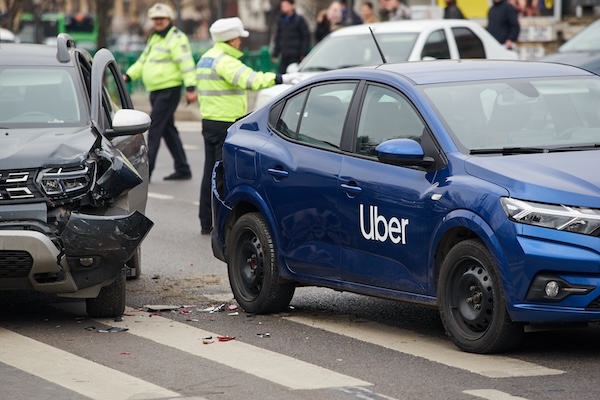Hurt in Atlanta with a fractured or broken bone? Our Georgia State Bar-licensed, trial-ready Atlanta fracture lawyers help clients recover medical bills, lost wages, and pain and suffering—no fee unless we win. We handle car, truck, slip-and-fall, rideshare, and work-related fracture claims across Fulton, DeKalb, and Cobb. Get a free case evaluation today, and let us deal with insurers while you focus on healing.
Get Your Free Case Evaluation Today
Don’t wait to protect your rights. Schedule a free consultation with our Atlanta fracture attorneys.
Call Now: 866-4-LAW-411 or Schedule Online
Your Rights After a Fracture in Georgia (O.C.G.A. § 9-3-33, Comparative Negligence)
Georgia Personal Injury Basics
Georgia personal injury law allows you to seek compensation when someone’s negligence causes your broken bone. Whether it’s a car accident, slip and fall, or workplace injury, you have the right to pursue damages for your medical expenses, lost income, and pain and suffering.
Negligence and Liability (Duty, Breach, Causation, Damages)
To win your case, we must prove negligence by showing the responsible party had a duty to keep you safe, breached that duty, and caused your fracture. Liability determines who pays for your damages—whether it’s a driver, property owner, or employer.
Statute of Limitations (Two Years) — O.C.G.A. § 9-3-33
Under O.C.G.A. § 9-3-33, you have two years from the date of your injury to file a lawsuit in Georgia. Missing this deadline could mean losing your right to compensation forever. That’s why it’s crucial to consult an attorney quickly.
Modified Comparative Negligence (50% Bar Rule)
Georgia follows modified comparative negligence rules with a 50% bar rule. If you’re less than 50% at fault for your accident, you can still recover damages, though your compensation will be reduced by your percentage of fault.
Common Causes of Broken Bones in Atlanta (Car, Truck, Slip & Fall, Work, Rideshare)
Car and Truck Accidents
Vehicle crashes remain the leading cause of fractures in Atlanta. The force of impact can cause severe breaks requiring surgery and extensive rehabilitation.
Slip and Falls (Premises Liability — O.C.G.A. § 51-3-1)
Property owners must maintain safe conditions. Under O.C.G.A. § 51-3-1, they can be held liable for fractures caused by hazards like wet floors, broken stairs, or poor lighting.
Workplace and Construction Accidents
Construction sites and industrial workplaces pose significant fracture risks. While workers’ compensation covers many injuries, third-party claims may provide additional compensation.
Sports and Recreational Incidents
From youth sports to adult leagues, fractures can occur when facilities are unsafe or equipment is defective.
Defective Products
Faulty products, from ladders to exercise equipment, can cause serious fractures when they fail.
Motorcycle Crashes
Motorcyclists face higher fracture risks, often suffering multiple breaks in crashes.
Pedestrian Accidents
Pedestrians struck by vehicles frequently suffer hip, leg, and arm fractures.
Bicycle and E-Scooter Collisions
Atlanta’s growing bike and scooter traffic has led to more fracture injuries from collisions.
Rideshare (Uber/Lyft) and Delivery Driver Accidents
Rideshare insurance policies can be complex, but coverage is often available for fracture injuries.
Public Transit/MARTA Incidents
MARTA accidents require special notice procedures and have strict deadlines for government claims.
Nursing Home and Assisted Living Falls
Elderly residents suffering fractures due to inadequate supervision or unsafe conditions deserve justice.
Fracture Types & Orthopedic Treatment (X-rays, ORIF, Casting, PT)
Closed vs. Open (Compound) Fractures
Simple fractures stay within the skin, while compound fractures break through, risking infection and requiring emergency surgery.
Displaced vs. Non-Displaced
Displaced fractures require realignment, often through Open Reduction Internal Fixation (ORIF) surgery with plates, screws, or rods.
Comminuted, Hairline, and Stress Fractures
Comminuted fractures shatter bones into multiple pieces, while hairline and stress fractures may seem minor but still require proper treatment.
Complications: Nonunion, Malunion, Nerve Damage, CRPS
When bones don’t heal properly (nonunion) or heal incorrectly (malunion), additional surgeries and treatments become necessary. Some fractures cause nerve damage or Complex Regional Pain Syndrome (CRPS), resulting in severe, ongoing pain requiring specialized pain management.
Common Fracture Sites
We handle cases involving wrist/hand, ankle/foot, hip/pelvis, femur/tibia/fibula, shoulder/clavicle, and ribs/spine fractures.
Personal and Financial Impact of Broken Bones
Medical Bills, Surgery, and Rehabilitation
Fracture treatment costs add up quickly—emergency care, radiology imaging (X-rays, CT scans, MRI), orthopedic surgeon fees, ORIF surgery, casting and splinting, and physical therapy.
Lost Wages and Reduced Earning Capacity
Time off work for treatment and recovery means lost income. Severe fractures may permanently affect your ability to work, reducing your earning capacity.
Pain and Suffering
The physical pain and emotional distress from fractures deserve compensation beyond just medical bills.
Assistive Devices and Out-of-Pocket Costs
Wheelchairs, crutches, home modifications, and transportation to appointments create additional expenses.
Medical Liens and Health Insurance Subrogation
Hospital liens under O.C.G.A. § 44-14-470 and insurance reimbursement claims require careful negotiation to maximize your recovery.
Long-Term Disability and Life-Care Planning
Severe fractures may require life-care planners and vocational experts to calculate future needs and lost opportunities.
Don’t Face Insurance Companies Alone
Insurance adjusters work to minimize payouts. Let our experienced attorneys handle negotiations while you focus on healing.
Free Consultation: 866-4-LAW-411
Steps to Take After an Injury
- Seek immediate medical care and follow all treatment recommendations
- Document the scene and injuries with photos and witness information
- Obtain accident/police reports for evidence
- Preserve evidence and request spoliation letter from attorney
- Notify insurance but avoid recorded statements without counsel
- Avoid social media posts about your accident or activities
- Consult an orthopedic specialist for proper diagnosis and treatment
How an Atlanta Broken Bone Attorney Helps
Free Case Evaluation and Strategy
We review your case at no cost and develop a winning strategy tailored to your situation.
Evidence Gathering and Expert Witnesses
We work with medical professionals, accident reconstruction experts, and biomechanics specialists to build your case.
Handling Insurance Claims and Communications
We deal with insurance companies, protecting you from bad-faith tactics and low settlement offers.
Calculating Damages and Future Losses
We ensure all damages are accounted for, including future surgeries and hardware removal.
Negotiation for Fair Settlement
Our attorneys negotiate aggressively for maximum compensation.
Litigation and Trial Representation
If necessary, we’re trial-ready litigators who’ll fight for you in Fulton County, DeKalb County, or Cobb County courts.
Policy-Limits Searches and Time-Limited Demand Letters
We investigate all available coverage and use strategic bad-faith demands under O.C.G.A. §§ 33-4-6 and 33-4-7.
Coordinating Liens
We negotiate Medicare, Medicaid, ERISA, and hospital liens to maximize your recovery.
Using Life-Care Planners and Vocational Experts
For severe injuries, we bring in experts to prove long-term impacts and needs.
Proving Negligence and Liability
Duty, Breach, Causation, and Damages
We establish all four elements required to prove negligence in your fracture case.
Using Medical Records, Imaging, and Expert Opinions
X-rays, CT scans, MRI results, and expert testimony demonstrate injury severity.
Accident Reports, Witness Statements, and Scene Evidence
We gather comprehensive evidence to prove how the accident occurred.
Accident Reconstruction and Biomechanical Analysis
Technical experts recreate accidents and explain injury mechanisms.
Surveillance, Dashcam, Black Box, and Telematics Data
Modern technology provides powerful evidence, especially in commercial trucking/FMCSA cases.
What Your Claim Can Recover (Medical Bills, Lost Wages, Pain & Suffering)
Compensation You May Recover:
- Medical bills (past and future)
- Lost wages and loss of earning capacity
- Pain and suffering
- Scarring and disfigurement
- Household services and caregiver costs
- Future surgeries and hardware removal
Medical Costs (Past/Future) and Hardware Removal
All treatment costs, including emergency care, surgery, physical therapy, and future procedures like hardware removal surgeries that can cost tens of thousands of dollars.
Lost Wages and Loss of Earning Capacity
Income lost during recovery and reduced future earning potential. Impairment ratings help establish how permanent limitations affect your ability to work and earn.
Pain and Suffering; Scarring/Disfigurement; Loss of Enjoyment
Compensation for physical pain, emotional distress, permanent visible injuries, and inability to enjoy activities you once loved.
Future Surgeries and Hardware Removal
Many fractures requiring ORIF surgery will need hardware removal within 12-24 months. These additional surgeries increase both future medical costs and pain and suffering damages, often adding $25,000-$50,000 or more to your claim value.
Rehabilitation and Out-of-Pocket Expenses
Physical therapy, assistive devices, and related costs.
Punitive Damages
Under O.C.G.A. § 51-12-5.1, punitive damages may apply in cases of gross negligence.
Household Services and Caregiver Costs
Help needed for daily tasks during recovery.
Insurance Coverage & Negotiations (BI, UM/UIM, MedPay, Workers’ Comp)
Bodily Injury Liability Coverage
The at-fault party’s insurance typically covers your damages.
UM/UIM Stacking & Resident Relative Coverage
We explore all available uninsured/underinsured motorist coverage options, including stacking policies and resident relative coverage, to maximize recovery.
Workers’ Compensation Interplay
Work injuries may involve both workers’ comp and third-party claims.
Responding to Low Settlement Offers
We counter lowball offers with strong evidence and aggressive negotiation.
Hospital Liens (O.C.G.A. § 44-14-470)
We negotiate hospital liens under O.C.G.A. § 44-14-470 to ensure you keep more of your settlement.
Bad-Faith Demands (O.C.G.A. §§ 33-4-6, 33-4-7)
When insurers act in bad faith, we use O.C.G.A. §§ 33-4-6 and 33-4-7 to seek additional remedies and maximize your recovery.
Independent Medical Examinations (IMEs): What to Know
Insurance companies may request an IME with their chosen doctor to dispute your injuries. We prepare clients for these examinations and object when examiners show bias. You have rights during IMEs, including bringing a witness and requesting copies of the report.
Policy Limits Tenders and Excess Exposure Letters
Strategic approaches to maximize recovery when damages exceed policy limits.
From Free Case Evaluation to Settlement or Trial
Initial Consultation and Case Evaluation
Free meeting to review your case and explain your options.
What to Bring to Your Free Case Evaluation:
- Medical records and imaging (X-rays, CT, MRI)
- Accident/police reports
- Photos and video evidence
- Insurance information
- Wage/income documentation
- Out-of-pocket expense receipts
Investigation and Evidence Development
Thorough investigation to build a strong case.
Demand Package and Negotiations
Comprehensive demand presenting your damages and negotiating settlement.
Filing Suit and Discovery
If necessary, filing lawsuit and conducting discovery.
Mediation/Alternative Dispute Resolution
Many cases resolve through mediation without trial.
Trial and Potential Appeals
Full trial representation if needed.
Typical Timelines and Variables
Most cases resolve in 6-18 months, though complex cases may take longer.
Venue Strategy: Fulton, DeKalb, Cobb
Strategic filing in Fulton, DeKalb, or Cobb counties based on case factors and jury verdict trends.
Attorney Fees (Contingency) — No Fee Unless We Win
Contingency Fee Structure
You pay nothing upfront. Our contingency fee comes from your settlement or verdict.
Case Expenses and When They’re Paid
We advance case expenses and recover them from your settlement.
When Attorney Fees Are Owed
Only when we win your case.
No Fee Unless We Win
If we don’t recover compensation, you owe nothing. Free second opinions available.
Why Hire Our Atlanta Fracture Lawyers (Local Courts, Trial-Ready, Results)
Choosing the Right Lawyer:
- Trial experience in Fulton, DeKalb, and Cobb courts
- Local venue knowledge and jury verdict history
- Resources for experts and accident reconstruction
- Clear client communication and case updates
- Proven verdicts and settlements in fracture cases
Qualifications and Relevant Experience
Look for Georgia State Bar-licensed attorneys with proven fracture case experience.
Trial Readiness and Resources
Choose trial-ready litigators with resources to take on insurance companies.
Communication and Client Service
Your attorney should keep you informed and respond promptly.
Local Knowledge of Atlanta Courts and Insurers
Experience with local courts and major insurers like State Farm, GEICO, Allstate, and Progressive matters.
Client Testimonials, Verdicts, and Settlements
Review past results and client feedback.
Georgia Laws That Affect Your Claim (Premises Liability § 51-3-1; Punitive § 51-12-5.1)
Statute of Limitations for Personal Injury Claims
Two years from injury date under Georgia law.
Modified Comparative Negligence Rules
Recovery allowed if less than 50% at fault.
Special Notice Requirements for Government Entities
Ante litem notice required under O.C.G.A. § 36-33-5 and GTCA § 50-21-26.
Key Georgia Statutes
Understanding O.C.G.A. § 9-3-33 (statute of limitations), O.C.G.A. § 51-3-1 (premises liability), O.C.G.A. § 51-12-5.1 (punitive damages), and ante litem notice requirements is crucial for your case.
Medical Treatment and Recovery for Fractures
Diagnostics
X-rays, CT scans, and MRI identify fracture type and severity.
Orthopedic Care and Pain Management
Specialized treatment from orthopedic surgeons and pain specialists.
ORIF Surgery
Open Reduction Internal Fixation with plates, screws, or rods for severe fractures.
Casting, Splinting, and Immobilization
Traditional treatment methods for stable fractures.
Physical Therapy and Rehabilitation
Essential for regaining strength and mobility.
Maximum Medical Improvement (MMI)
Point where further improvement is unlikely, allowing impairment rating assessment. Impairment ratings quantify permanent limitations and directly affect settlement values by establishing loss of earning capacity and need for future care.
Common Complications
Infection, nonunion/malunion, nerve damage, and CRPS require additional treatment.
Hardware Removal and Future Medical Needs
Many patients need hardware removal surgery later.
Average Settlement Values for Broken Bones in Georgia
What Drives Value
Liability strength, treatment required, permanency, and venue affect settlement values.
Typical Ranges by Fracture Type
Simple wrist fractures may settle for $25,000-$75,000, while femur/hip fractures requiring surgery often exceed $100,000.
Impact of Surgery on Claim Value
ORIF surgery significantly increases case value due to invasiveness and recovery time.
Policy Limits and Settlement vs. Trial Value
Available coverage and willingness to try the case affect final recovery.
Illustrative Case Examples
Recent settlements include $150,000 for tibial plateau fracture requiring ORIF, $85,000 for displaced wrist fracture.
Special Situations & Complex Claims
Rideshare Accidents
Uber/Lyft insurance provides up to $1 million coverage when driver is engaged.
Commercial Truck Crashes
FMCSA regulations and higher insurance limits often mean larger recoveries.
MARTA and Government Entity Claims
Special notice requirements and sovereign immunity issues require experienced counsel.
Work Injuries and Third-Party Liability
Coordination between workers’ compensation and third-party claims.
Bicycle and E-Scooter Accidents
Growing area of claims with unique insurance issues.
Pedestrian and Hit-and-Run Cases
UM/UIM coverage crucial when at-fault driver flees or lacks insurance.
Claims for Minors and Children
Special procedures protect children’s settlements.
Out-of-State Visitors
We help visitors injured in Atlanta navigate Georgia law.
Local Insight: Grady, Emory, Piedmont; State Farm, GEICO, Allstate, Progressive
Fulton, DeKalb, and Cobb State/Superior Courts
Each county has different jury pools and verdict trends we understand.
Major Trauma Centers
Grady, Emory, and Piedmont hospitals provide excellent fracture care and documentation.
Common Insurers in Atlanta
We know how State Farm, GEICO, Allstate, and Progressive handle Atlanta fracture claims.
What to Expect at Your Free Case Evaluation
What to Bring
Medical records, accident reports, photos, insurance information, and witness contacts.
Questions to Ask Your Attorney
Experience with fracture cases, trial record, fee structure, and case strategy.
Next Steps After Consultation
Sign representation agreement, begin investigation, and start building your case.
How We Estimate Value and Timeline
Based on injury severity, liability, and available coverage.
Ready to Get Started?
Don’t let insurance companies minimize your fracture claim. Our experienced Atlanta broken bone lawyers fight for maximum compensation.
Call 866-4-LAW-411 for Your Free Consultation
No fees unless we win. Georgia State Bar-licensed attorneys. Ethical practice standards aligned with the ABA.
FAQs
Nothing upfront. We work on contingency, meaning you only pay if we win your case. Our fee comes from your settlement or verdict.
First, we evaluate your case free. Then we investigate, gather evidence, negotiate with insurance, and file suit if needed. Most cases settle without trial.
Medical bills, lost wages, pain and suffering, future medical needs, scarring and disfigurement, and loss of enjoyment of life.
Typically 6-18 months, depending on injury severity and whether litigation is needed. Complex cases may take longer.
Georgia State Bar license, experience with fracture cases, trial readiness, and knowledge of local courts and insurers.
With contingency representation, your financial risk is minimal. The main risk is time invested if the case is unsuccessful.
Don’t accept it. Let us negotiate for fair compensation or take the case to trial if necessary.
Yes, reputable attorneys work on contingency, meaning no upfront costs and no fee unless you win.
Medical records, accident reports, witness statements, photos, and expert testimony establish negligence and damages.
Yes, most cases settle through negotiation or mediation without going to trial.
Two years from the injury date under O.C.G.A. § 9-3-33. Don’t delay—contact an attorney immediately.
Settlements vary widely based on fracture type, from $25,000 for simple breaks to over $100,000 for complex fractures requiring surgery.
Generally yes. Settling before reaching Maximum Medical Improvement may undervalue your claim.
Yes. The “eggshell plaintiff” rule means defendants take victims as they find them, including pre-existing conditions.
Rideshare companies provide up to $1 million coverage when drivers are engaged. We handle these complex claims.
Your insurance policy may require attending an IME, and refusing could jeopardize your claim. However, you have rights during the examination. We prepare clients for IMEs and can request safeguards against biased examiners.
Our contingency fees are competitive with other reputable Atlanta firms, typically 33.33% pre-suit and 40% if litigation is required. We advance all case costs including expert fees, court costs, and medical record expenses, recovering them only from your settlement or verdict.
Yes. We work with orthopedic surgeons and imaging centers who treat on a lien basis, meaning they wait for payment until your case resolves. This ensures you get necessary treatment even without health insurance.
External Resources
- American Bar Association — Personal Injury Overview
- State Bar of Georgia — Consumer Guide to Personal Injury Law
- CDC — Injury and Broken Bone Statistics
- Georgia Code § 9-3-33 — Statute of limitations for injuries
- Georgia Code § 51-3-1 — Premises liability
- Georgia Code § 44-14-470 — Hospital liens
- Georgia Code § 51-12-5.1 — Punitive damages
Don’t Wait—Protect Your Rights Today
The statute of limitations is ticking. Schedule your free consultation with our experienced Atlanta fracture attorneys now.
Call 866-4-LAW-411 or Contact Us Online
Free case evaluation • No fees unless we win • Local Atlanta representation



